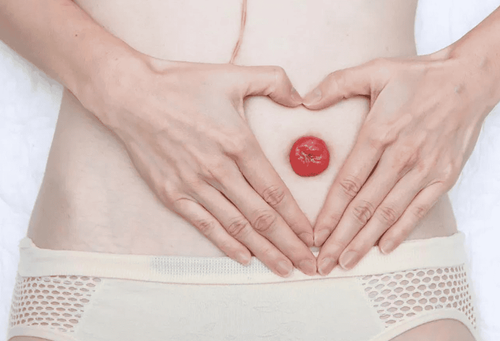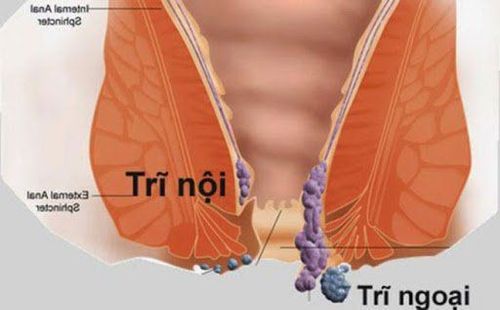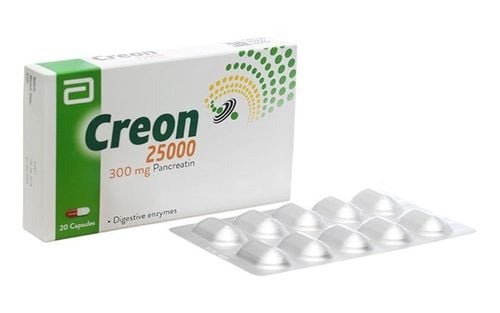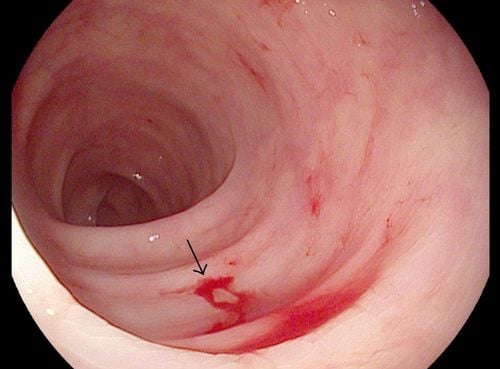This is an automatically translated article.
The article was professionally consulted with resident Doctor Le Thanh Tuan - Gastroenterologist - General Surgery Department - Vinmec Nha Trang International General Hospital.Hemorrhoid embolism is a condition in which the network of blood vessels in the anal canal is broken, forming a blood clot that causes an embolism. Hemorrhoid embolism progresses silently along with hemorrhoids. If not detected and treated in time, hemorrhoid occlusion can lead to a number of dangerous complications.
1. What is hemorrhoid embolism?
Hemorrhoid thrombosis, also known as hemorrhoid infarction, is a condition in which the veins in the blood vessel network in the lumen of the anal canal (hemorrhoids) become compressed, break and form blood clots, causing vessel blockage.Hemorrhoid embolism is a silent progression and a complication of hemorrhoids that, if left untreated, can lead to necrosis.
2. Causes of hemorrhoid occlusion
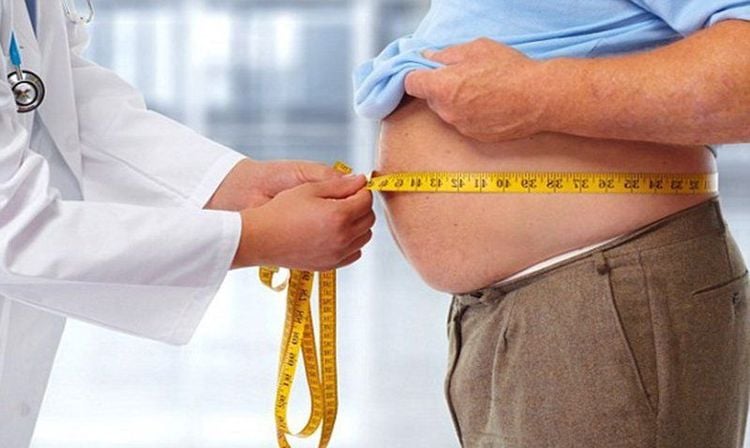
2.1 Unreasonable diet Improper diet, use of stimulants such as alcoholism is one of the causes of severe hemorrhoids further, swelling, compression and thrombus formation cause embolism.
2.2 Overweight, obesity Patients with hemorrhoids, if overweight or obese, can face a high risk of complications. Too much body weight puts pressure on the veins, which can even rupture the veins and form blood clots, causing hemorrhoid embolism.
2.3 Working out or exercising too much Frequent lifting of heavy loads, vigorous exercise, and physical exertion can put a lot of pressure on the anus, increasing the risk of venous rupture and formation of blood clots.
2.4 Aneurysm Aneurysm, if left untreated, can cause thromboembolic complications, infection when the vein is dilated and severe.
2.5 Last month of pregnancy If a woman has hemorrhoids while she is pregnant, in the last months of pregnancy, the growing fetus can compress the veins in the anorectal region, leading to hemorrhoid embolism.

3. Symptoms of thromboembolism of hemorrhoids
Hemorrhoid embolism has similar symptoms to hemorrhoids but with more severity. Depending on the size of the blood clot and the patient's condition, the symptoms will have different levels, specifically:Severe pain: The pain is sharp, intense and lasts from 4-6 days in the area. anus. Difficulty defecation: Patients often feel like they want to defecate but have difficulty when defecating. Difficulty walking or sitting: Clogged hemorrhoids causes the anal sphincter to close, making it difficult to walk or sit. Bleeding, bleeding, sores, necrosis of the anus: When blood clots rupture, causing swelling and pain, fluid can drain and cause sores, infection, and even gangrene.
4. Treatment of thrombosed hemorrhoids

Treatment of thrombosed hemorrhoids can be medical or surgical, depending on the extent and response to treatment of the patient.
4.1 Medical treatment Medical treatment is indicated for mild cases of hemorrhoid occlusion with drugs such as anti-inflammatory, analgesic, antibiotics, anti-edema, anti-constipation.
Patients are allowed to use the drug in the form of topical or oral with appropriate doses, and at the same time, it is necessary to maintain anal hygiene to limit infection.
4.2 Surgical treatment Surgical treatment is indicated in cases of severe hemorrhoid occlusion or unresponsive to medical treatment. The patient underwent surgery to remove the blood clot.
5. Prevention of thromboembolism of hemorrhoids

Do not use stimulants such as tobacco, beer, alcohol, ... Do not eat spicy foods such as hot and spicy. Drink enough water every day (from 1.5 to 2 liters of water). Increase green vegetables and fruits in meals to limit constipation. Practice the right exercises to improve digestive function and stimulate bowel movements (yoga). Avoid increasing pressure on hemorrhoids causing hemorrhoid occlusion by not lifting heavy loads, doing strenuous work, sitting for too long. If hemorrhoid occlusion is detected early, treated promptly, the patient will coordinate and follow the doctor's treatment to quickly reduce and recover.
Please dial HOTLINE for more information or register for an appointment HERE. Download MyVinmec app to make appointments faster and to manage your bookings easily.





